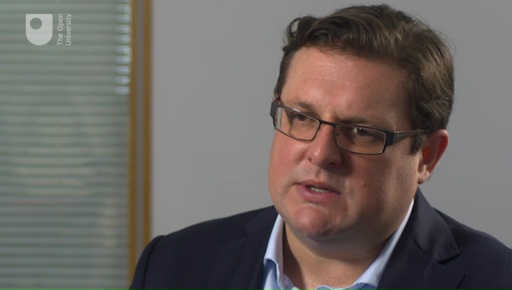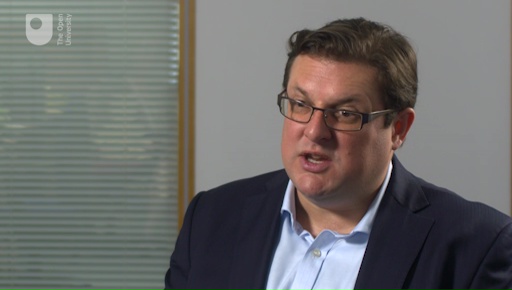4 How recruiters assess your resilience
So far this week, you’ve looked at various ways to assess your own career resilience, but the other place where resilience can be scrutinised in a career context is during the recruitment process. This is often because the role itself requires high levels of personal resilience, for example in a healthcare setting, or fast-paced retail environment.
In the next activity, you’ll consider how a senior recruiter looks out for resilience during the assessment process.
Activity 5 Resilience in recruitment
Charlie Reeve, Group Talent Manager at the Go Ahead Group, has extensive experience leading on recruitment and training for some of the UK’s biggest employers, from retail and public transport to professional services. In the video below, he discusses how, in roles where resilience is a key part of the job, he looks out for it during the assessment process. Watch the video and note any points that are new to you.

Transcript: Video 2 Observing resilience in applicants
Discussion
Charlie looks out for how well candidates cope with problems and challenges, and how well they engage people around them to help solve problems if things are going sideways. For some roles he will push candidates to a situation where they are facing failure, for example, by adding new information part way through an assessed task. This allows him to see how they cope with that failure in a stressful situation, which coping mechanisms they have already learned and how they talk about their emotions.
He is seeking positive indicators that the candidate has more of a growth mindset than a fixed one, i.e. believing they can change and improve things, and that they and others can change.
You can see how a growth mindset and a positive outlook on life in general add value in the workplace.
In the next activity, you will consider how best to demonstrate what Charlie is looking for in job candidates.
Activity 6 Demonstrating resilience in recruitment
What might Charlie Reeve be looking for on an application form or in the situations you’ve previously considered, e.g. at a job fair or in an appraisal? Watch this video and note down what Charlie has to say.

Transcript: Video 3 A growth mindset in your applications
Discussion
Charlie describes resilient candidates using positive language, and showing enthusiasm, demonstrating clarity on their strengths and on what they’ve achieved despite challenges. He is looking for candidates who collaborate with others within a network, rather than those who tend to operate in isolation.
Another recruiter describes how she assesses applicants for management consultancy roles by giving an hour-long, case study group task, in which they need to come up with a joint proposal for the way forward. Thirteen minutes before the end of the task the candidates are given additional information that dramatically shifts the exercise. Assessors are looking at candidates’ reactions and ability to come up with something workable in a challenging situation, a task that reflects the demands of the job.
Similarly, social work recruiters describe role-play situations where the candidate is put in a scenario where their proposal for the way forward is rejected out of hand. Recruiters are looking to see how the candidate handles their feelings of helplessness and vulnerability, how creative they are able to be under pressure, the extent to which they will bounce back and continue to make their case in a new and fruitful direction to meet the needs of their client, or whether they crumple at the first resistance.
While not all employers are explicitly looking for individuals to demonstrate their resilience during the recruitment process, they will all value a resilient candidate. As you’ll learn next week, change is almost a constant in the modern workplace and your resilience will be highly valued, by both managers and colleagues.
